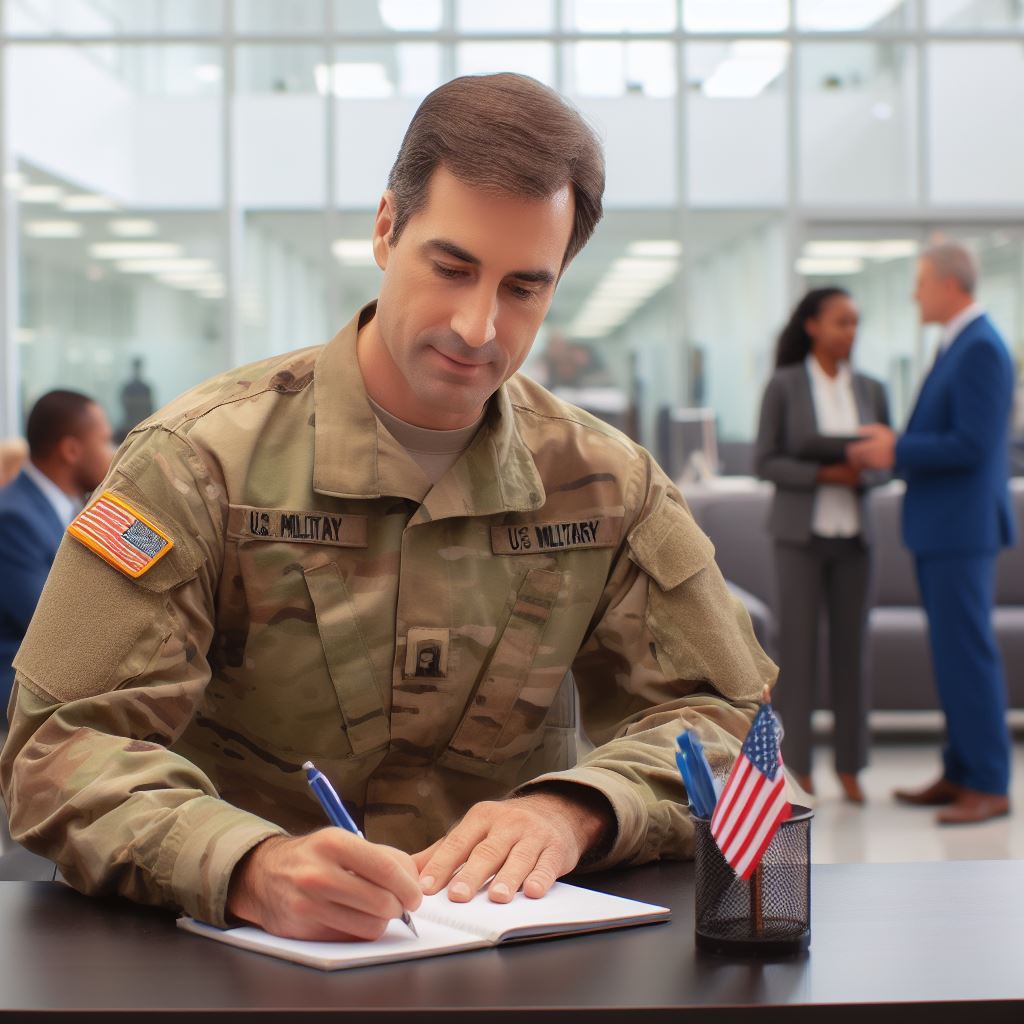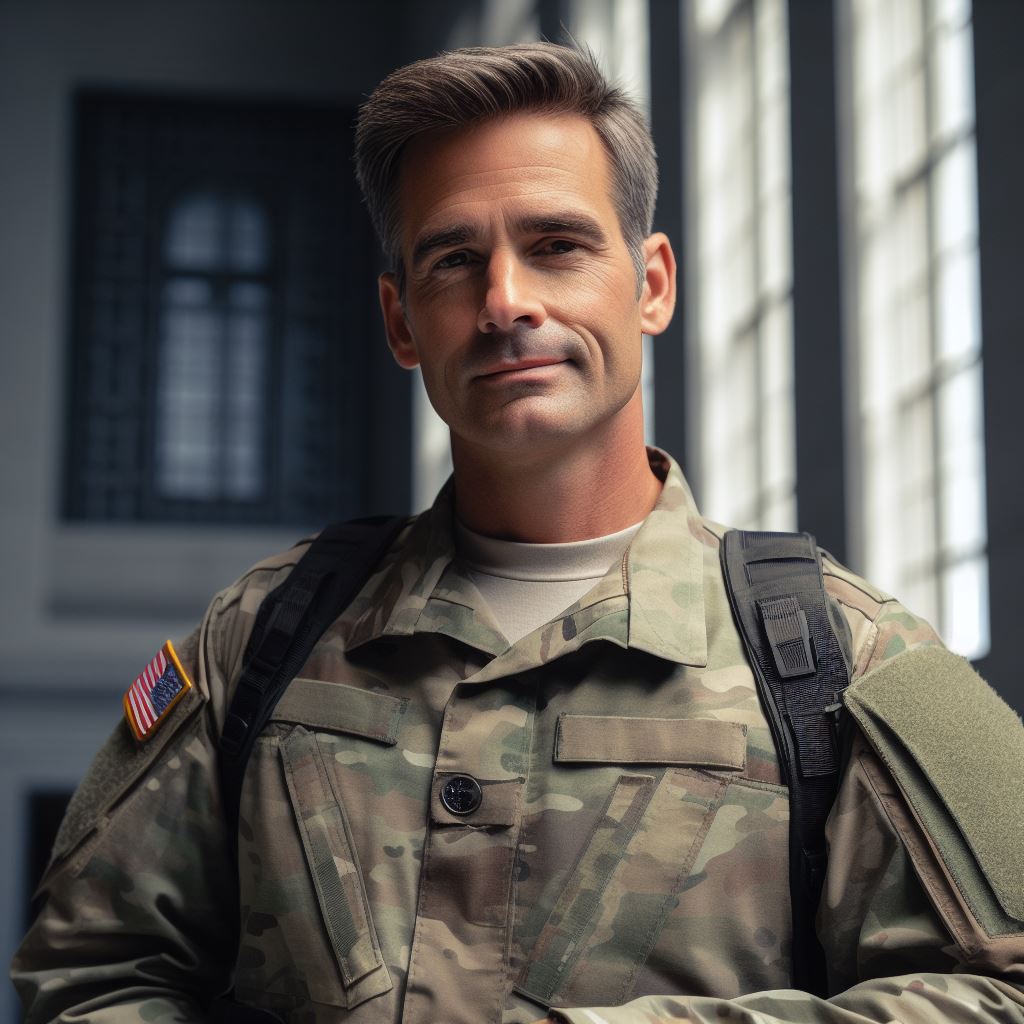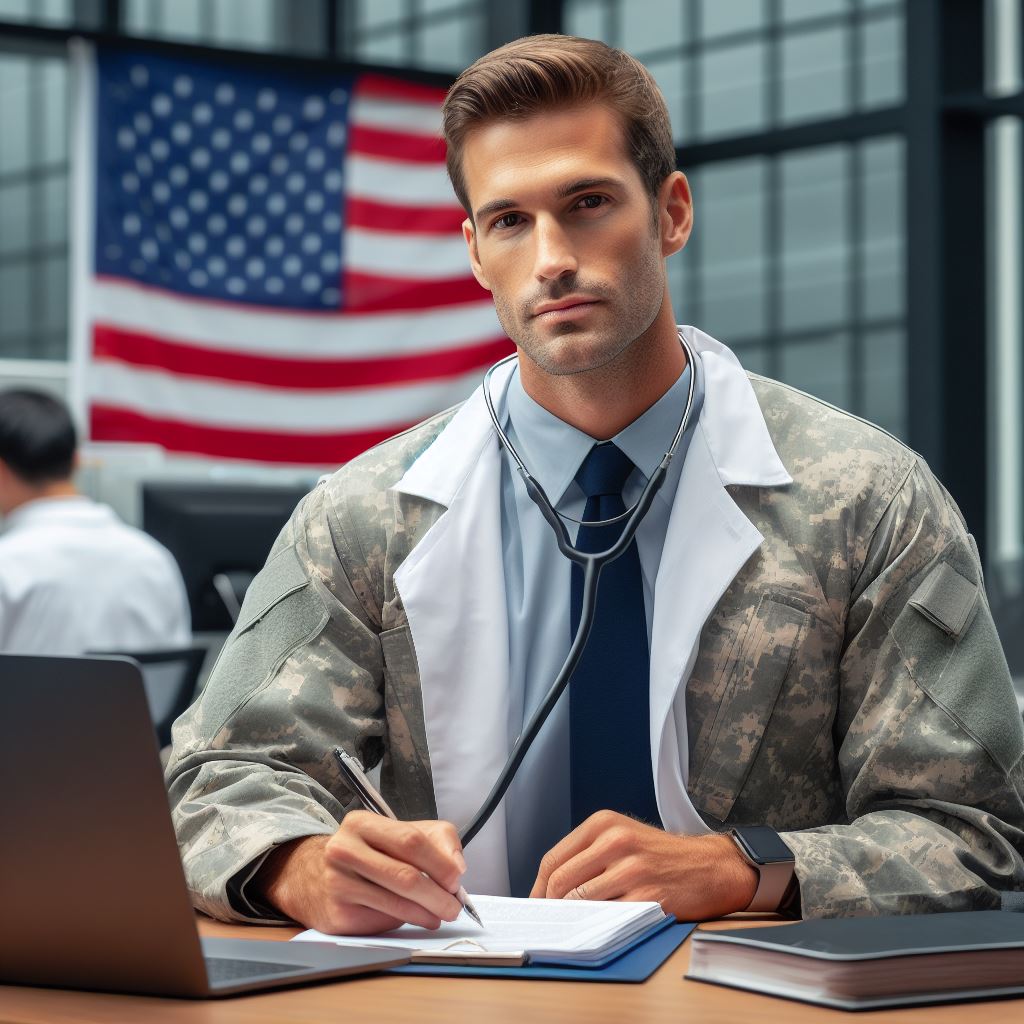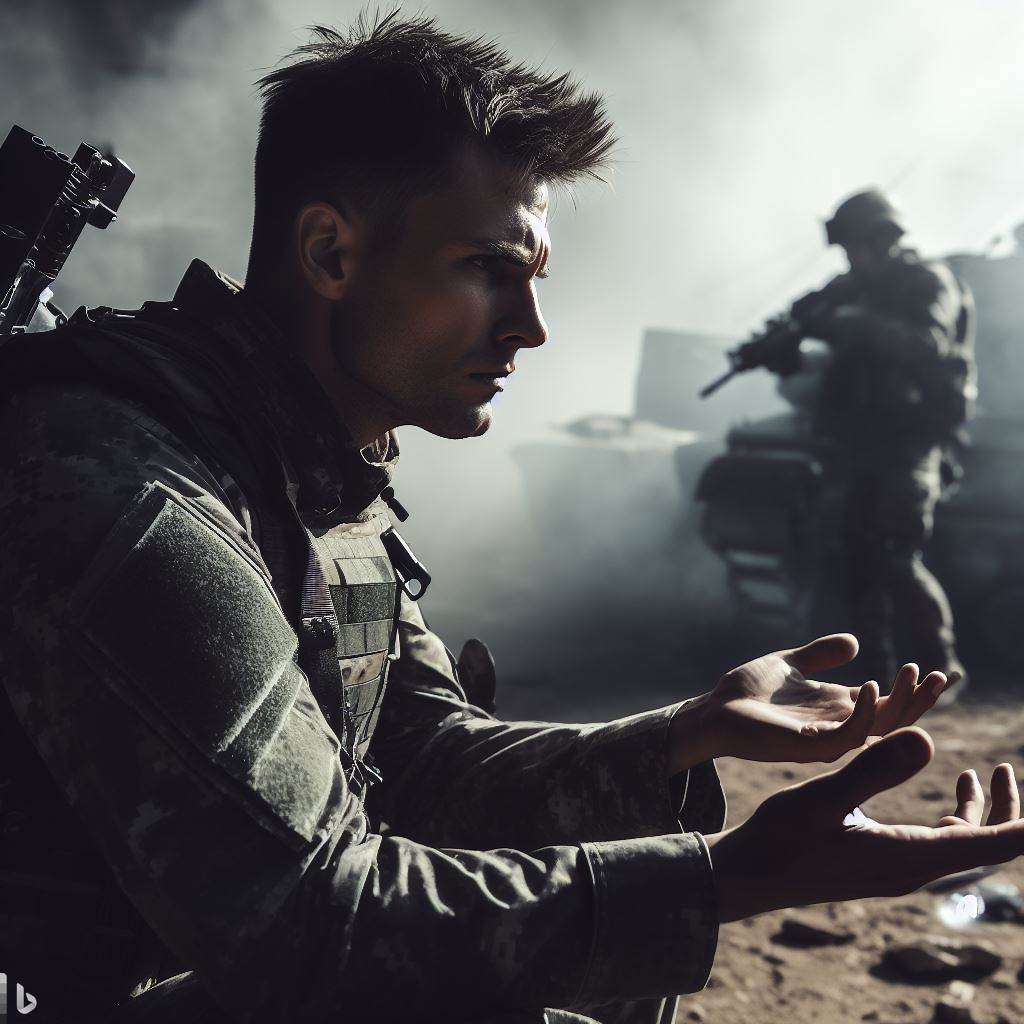Introduction
The role of chaplains in the forces is crucial as they provide spiritual guidance and support to military personnel.
These chaplains play a vital role in maintaining the well-being and morale of the soldiers, addressing their spiritual needs.
As the armed forces are often exposed to high-stress situations and life-threatening circumstances, the role of chaplains becomes even more significant.
They are responsible for fostering a sense of spiritual resilience and offering comfort during tough times.
Chaplains act as a bridge between religion and the military, promoting the freedom of religion while maintaining the military’s values and discipline.
They provide a safe space for soldiers to discuss their beliefs and challenges, ensuring religious inclusivity.
The role of chaplains goes beyond offering spiritual guidance; they also serve as confidants and counselors.
They provide a listening ear to soldiers and offer advice on a wide range of issues, including relationship problems and mental health.
Moreover, chaplains facilitate religious services and rituals, allowing soldiers to practice their faith even in the midst of their duties.
This helps maintain the connection to their religious identity and provides solace in times of distress.
Basically, the role of chaplains is indispensable in the forces, providing spiritual guidance, support, and comfort to military personnel.
Their contributions play a crucial role in maintaining the overall well-being and morale of the soldiers, ensuring their holistic development in the face of adversity.
Definition and Purpose of Chaplains in the Military
Chaplains play a crucial role in providing spiritual guidance and support to military personnel.
They have a unique position within the armed forces, serving as religious leaders who offer pastoral care to individuals from diverse religious backgrounds.
A. Definition and Role of Chaplains in the Armed Forces
Chaplains are ordained clergy members or religious representatives who serve in various branches of the military.
They are responsible for providing religious services, counseling, and moral support to service members and their families.
One of the key roles of chaplains is to facilitate religious practices and observances for military personnel according to their faith traditions.
This may include organizing religious services, leading prayers, conducting religious ceremonies, and providing sacraments.
Chaplains also act as a source of emotional and mental support for service members, offering guidance and counseling during stressful times such as deployments, combat situations, or personal crises.
They provide a safe and non-judgmental space for individuals to express their thoughts and emotions.
B. Overview of the Purpose and Importance of Spiritual Guidance for Military Personnel
Spiritual guidance plays a vital role in the lives of military personnel, especially in challenging and high-stress environments.
It helps them maintain their faith, find inner strength, and cope with the emotional and psychological burdens of military service.
Firstly, spiritual guidance offers a sense of purpose and meaning to service members.
It acknowledges the existential questions that arise in the midst of war and helps individuals find comfort and solace in their religious beliefs.
This sense of purpose can contribute to overall morale and resilience.
Secondly, spiritual guidance fosters a sense of community and connectedness within the military.
Chaplains create spaces for religious congregations and gatherings, fostering a support network where individuals can find comfort, camaraderie, and understanding.
Moreover, spiritual guidance promotes ethical decision-making and moral development among military personnel.
Chaplains provide guidance on ethical dilemmas and help service members reconcile their actions with their religious beliefs.
This guidance ensures that individuals uphold their values and maintain their integrity within the military context.
Spiritual guidance also addresses the holistic well-being of military personnel, encompassing their mental, emotional, and spiritual dimensions.
Chaplains provide counseling and emotional support, helping individuals navigate the challenges of military life and fostering resilience in the face of adversity.
Basically, chaplains play a vital role in the armed forces by providing spiritual guidance and support to military personnel.
Their presence ensures that individuals from diverse religious backgrounds have access to religious services, counseling, and moral guidance.
Spiritual guidance promotes a sense of purpose, community, ethical decision-making, and holistic well-being among service members.
Historical Background and Evolution of Chaplaincy
In order to understand the role of chaplains in the military today, it is crucial to explore the historical origins and evolution of chaplaincy over the years.
A. Historical Origin of Chaplaincy in the Military
The presence of chaplains in the military can be traced back to ancient times. In the Roman military, priests were assigned to offer religious support to soldiers.
However, the concept of chaplaincy as we know it today began to take shape in the early Christian church.
During the Middle Ages, religious leaders known as chaplains accompanied knights on the battlefield.
The Protestant Reformation in the 16th century saw the emergence of chaplains in Reformed armies. These chaplains provided spiritual guidance and moral support to the soldiers.
Transform Your Career Today
Unlock a personalized career strategy that drives real results. Get tailored advice and a roadmap designed just for you.
Start NowB. Notable Milestones and Changes in the Role of Chaplains over the Years
Throughout history, the role of chaplains has evolved significantly, adapting to the changing needs of the military and society as a whole.
1. American Revolution and Civil War
During the American Revolution and Civil War, chaplains played a vital role in providing spiritual guidance to soldiers on both sides of the conflict.
Their duties included conducting religious services, offering counseling, and providing comfort to the wounded and dying.
2. World War I and II
The two World Wars marked a significant shift in the role of chaplains.
They not only continued to provide spiritual and emotional support but also became involved in moral guidance and ensuring religious tolerance among diverse troops.
Chaplains worked closely with soldiers, organizing religious services, distributing religious materials, and offering a listening ear to those struggling with the harsh realities of war.
3. Civil Rights Movement and Vietnam War
The Civil Rights Movement and Vietnam War brought about further changes in the role of chaplains.
They actively engaged in promoting racial equality and justice within the military and extended their support to soldiers questioning the morality of the war.
4. Modern Role
Today, chaplains continue to adapt to the evolving needs of the military.
They provide spiritual guidance, conduct religious ceremonies, counsel soldiers and their families, and ensure religious accommodations for a diverse military population.
Chaplains are also involved in promoting ethical behavior, fostering resilience, and supporting service members’ mental well-being.
They serve as trusted confidants who can provide non-judgmental support and guidance.
The role of chaplains in the military has a rich historical background and has seen remarkable evolution over the years.
From offering religious support in ancient times to becoming comprehensive spiritual and moral guides, chaplains continue to play a vital role in providing spiritual guidance to military personnel today.
Chaplains will adapt their role to support service members through evolving challenges on and off the battlefield amid military and societal changes.
Read: A Day in the Life of a U.S. Army Soldier: Real Stories
Responsibilities and Duties of Military Chaplains
When it comes to the armed forces, chaplains play a vital role in providing spiritual guidance and support to soldiers.
Their responsibilities and duties are diverse and encompass a wide range of tasks.
A. Overview of Chaplains’ Responsibilities
- Chaplains are responsible for conducting religious services and rituals for military personnel.
- They provide counseling and support services to address the emotional and spiritual needs of soldiers.
- Chaplains often serve as a bridge between different faith groups, fostering religious tolerance and understanding.
- They act as advisors to military commanders on matters of ethics, moral values, and religious considerations.
- Chaplains also participate in various ceremonies and rituals, such as memorials and deployment ceremonies.
These responsibilities require chaplains to be well-versed in their respective religious traditions and hold a deep understanding of the military environment.
B. Examples of Tasks Performed by Chaplains
Let’s delve into some specific tasks that military chaplains handle on a regular basis:
- Conducting Religious Services: Chaplains lead religious ceremonies, including worship services, funerals, baptisms, and weddings. They provide spiritual guidance and support to soldiers of all faiths.
- Counseling: Chaplains offer confidential counseling to soldiers, helping them cope with trauma, grief, stress, and other personal challenges. They provide a safe space for soldiers to discuss their concerns without judgment.
- Providing Moral Guidance: Chaplains advise commanders on ethical matters, ensuring that military operations align with moral principles. They help maintain the moral compass of the armed forces.
- Supporting Deployments: During deployments, chaplains accompany soldiers in the field, offering emotional and spiritual support. They help boost morale and provide a listening ear for soldiers experiencing homesickness or emotional distress.
- Religious Education: Chaplains organize religious education programs, study groups, and classes to deepen soldiers’ understanding of their faith. They offer guidance on religious practices and answer soldiers’ religious questions.
- Interfaith Dialogue: Chaplains facilitate interfaith dialogue and foster religious tolerance among soldiers. They organize events and discussions where soldiers from different faith backgrounds can learn from one another.
- Providing Crisis Intervention: In times of crisis, such as natural disasters or mass casualty events, chaplains are on hand to provide emotional and spiritual support to affected soldiers and their families.
These examples showcase only a fraction of the extensive duties military chaplains undertake to ensure the well-being of soldiers in the armed forces.
Essentially, the responsibilities and duties of military chaplains are manifold.
From conducting religious services to counseling, they play an indispensable role in the spiritual guidance and support of soldiers.
By fulfilling their duties, chaplains contribute to the holistic well-being of military personnel.
Read: Balancing Vigilance and Courtesy: A U.S. Security Guard Challenge
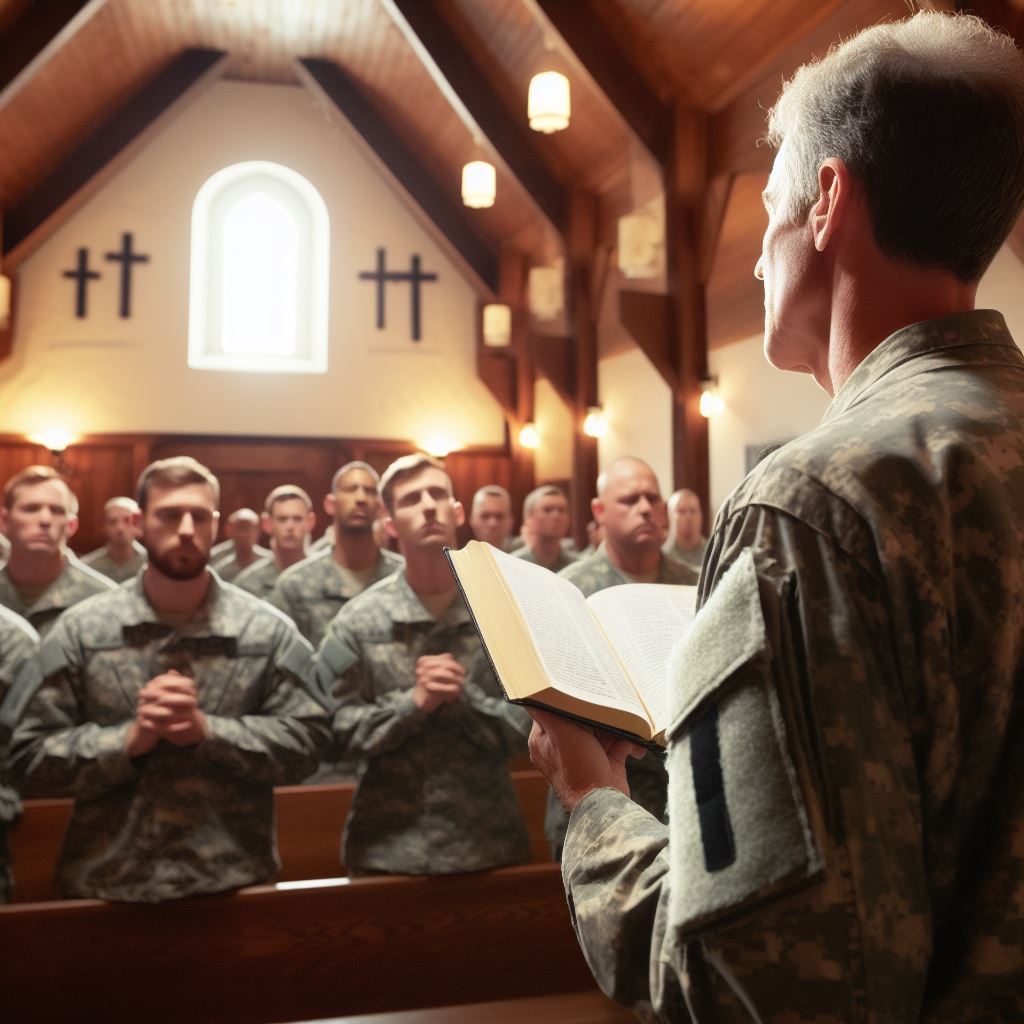
Importance of Spiritual Guidance for Armed Forces Personnel
In the military context, spiritual guidance holds immense significance for armed forces personnel.
It plays a crucial role in supporting their mental and emotional well-being, enhancing resilience, and promoting overall mission effectiveness.
A. The significance of spiritual guidance in the military context
- Coping with stress and trauma: Armed forces personnel often face high-stress situations, including combat, deployment, and exposure to traumatic events.
Spiritual guidance helps them navigate these challenges by providing a source of comfort, solace, and strength. - Fostering a sense of purpose: The military operates on a strong sense of duty, honor, and purpose. Spiritual guidance helps reinforce these values.
Reminding personnel of the importance of their service and motivating them to fulfill their responsibilities. - Promoting moral and ethical decision-making: In the face of difficult and morally ambiguous situations, spiritual guidance aids armed forces personnel in making sound moral and ethical choices.
It provides them with a moral compass and a framework to guide their decisions. - Building resilience: Military life can be demanding and challenging, requiring personnel to adapt and persevere in the face of adversity.
Spiritual guidance contributes to the development of resilience by fostering inner strength, hope, and the ability to bounce back from setbacks. - Nurturing a sense of community: The military thrives on camaraderie and a strong sense of belonging.
Spiritual guidance helps create a supportive community where personnel can find comfort, understanding, and a sense of unity.
B. How spiritual well-being can positively impact the mental and emotional resilience of military personnel
Spiritual well-being plays a vital role in enhancing the mental and emotional resilience of military personnel, allowing them to thrive even in challenging circumstances.
Showcase Your Business Today
Reach thousands of readers actively exploring professional services. Publish your business profile and grow your audience now.
Publish Now- Providing hope and meaning: Faith and spirituality offer a sense of hope, purpose, and meaning in life, especially during difficult times.
This hope acts as a protective factor against psychological distress, depression, and anxiety. - Facilitating emotional coping: Spiritual guidance provides armed forces personnel with coping mechanisms to handle intense emotions.
It encourages self-reflection, self-compassion, forgiveness, and the exploration of deeper values and beliefs. - Reducing stress: Engaging in spiritual practices, such as prayer, meditation, or religious rituals, can help military personnel manage stress more effectively.
These practices promote relaxation, mindfulness, and provide a sense of inner peace. - Enhancing connectedness: Spirituality fosters a connection between the self, others, and a higher power, promoting a sense of belonging and interconnectedness.
This connectedness acts as a buffer against feelings of loneliness, isolation, and detachment. - Promoting moral resilience: By nurturing moral values and ethical decision-making, spiritual well-being strengthens the moral resilience of armed forces personnel.
It enables them to navigate complex moral challenges while staying true to their principles.
All in all, spiritual guidance is of utmost importance for armed forces personnel.
It supports their mental and emotional well-being, facilitates coping with stress and trauma, builds resilience, fosters a sense of purpose, promotes moral decision-making, and enhances overall mission effectiveness.
Acknowledging and prioritizing the role of chaplains in providing spiritual guidance is essential for the holistic support and care of military personnel.
Challenges Faced by Military Chaplains
Being a military chaplain comes with its own set of unique challenges and difficulties.
These dedicated individuals must navigate cultural, religious, and ethical considerations while providing spiritual guidance and support to a diverse group of military personnel.
A. Identification of Unique Challenges
- Emotional and psychological distress faced by soldiers in combat zones creates an extra burden for chaplains.
- Chaplains often find themselves in situations where they must provide comfort and solace amidst the horrors of war.
- They must also deal with the challenges of being away from their families for extended periods.
- The constant exposure to traumatic events can take a toll on the mental and emotional well-being of chaplains.
- Chaplains may struggle with their own feelings of helplessness and frustration when unable to alleviate the suffering of those they serve.
B. Exploration of Cultural, Religious, and Ethical Considerations
The role of a military chaplain requires them to provide spiritual support to individuals from various cultural, religious, and ethical backgrounds.
Navigating these differences can be demanding, but it is essential for effective guidance:
1. Cultural Considerations
- Understanding and respecting the cultural practices and beliefs of military personnel is crucial for chaplains.
- They must be aware of customs, traditions, and taboos to ensure that their guidance aligns with the cultural context.
- Cultural sensitivity allows chaplains to build trust and rapport with individuals they serve, enhancing the efficacy of their spiritual guidance.
2. Religious Considerations
- Military chaplains encounter individuals belonging to various religious traditions with diverse spiritual needs.
- Chaplains must possess a broad knowledge of different religions to offer appropriate guidance and support.
- Respecting the beliefs of others and promoting religious freedom is essential for a chaplain’s effectiveness as a spiritual advisor.
3. Ethical Considerations
- Chaplains are moral and ethical beacons for military personnel, promoting ethical behavior and a sense of responsibility.
- They must navigate ethical dilemmas, such as confidentiality, when personal beliefs clash with military regulations.
- Balancing the duty to serve individuals with the duty to the military institution can be challenging, requiring careful consideration.
- Chaplains also face the ethical challenge of ensuring inclusivity and providing support to individuals with differing beliefs or no religious affiliation.
Despite the challenges they face, military chaplains play a vital role in providing spiritual guidance and support to military personnel.
By acknowledging and addressing the unique challenges encountered in their role, chaplains can enhance the effectiveness of their support services and foster resilience within the military community.
Read: Veterans Transitioning to Security Roles: A Guide for the U.S. Market
Benefits and Impact of Chaplaincy in the Armed Forces
In the armed forces, the presence of chaplains has proven to have numerous positive effects and benefits.
These spiritual guides play a crucial role in military units, contributing significantly to overall unit cohesion, morale, and the overall well-being of service members.
A. Positive Effects and Benefits of Having Chaplains in Military Units
- Mental and Emotional Support: Chaplains provide a safe space for service members to express their thoughts and emotions, offering confidential counseling and guidance to help them deal with the psychological stress of their duties.
- Spiritual Guidance: Chaplains cater to the diverse religious needs of service members, ensuring that they can freely practice their faith and seek spiritual solace, fostering a sense of belonging and purpose.
- Moral Compass: As moral leaders, chaplains help service members navigate ethical dilemmas, encouraging them to uphold core values and adhere to codes of conduct, reinforcing the importance of integrity and discipline.
- Crisis Intervention: In times of crisis, chaplains offer immediate support and guidance to service members, providing comfort, stability, and a sense of hope amidst challenging situations.
- Family Support: Chaplains extend their services beyond the troops and provide vital support to military families, assisting spouses and children in coping with the unique challenges of military life.
- Enhanced Resilience: Through counseling and spiritual guidance, chaplains help service members develop coping mechanisms, fostering resilience and helping them bounce back from adversity.
- Prevention of Moral Injury: Chaplains play a crucial role in preventing moral injury by addressing the internal conflicts that arise from service members’ exposure to trauma, war, and violent situations.
- Conflict Resolution: Chaplains promote dialogue, understanding, and reconciliation within military units, mediating conflicts and fostering a sense of unity among diverse groups of service members.
B. How Chaplains Contribute to Overall Unit Cohesion, Morale, and Overall Well-Being of Service Members
The presence of chaplains in military units has a profound impact on unit cohesion, overall morale, and the well-being of service members.
1. Unit Cohesion
Chaplains promote a sense of unity and camaraderie among service members, breaking down barriers and fostering a supportive environment where teamwork and trust can thrive.
By providing spiritual and emotional support, chaplains cultivate a strong bond within the unit, ensuring that soldiers can rely on one another during challenging times.
2. Morale Boost
Chaplains play a vital role in boosting morale within the armed forces.
They provide a source of inspiration and hope, reminding service members of the greater purpose behind their sacrifices.
By addressing emotional and spiritual needs, chaplains contribute to a positive mindset, resilience, and motivation among the troops.
3. Overall Well-being
The well-being of service members is crucial for the success of military operations.
Chaplains offer a holistic approach to well-being by addressing the physical, emotional, and spiritual aspects of soldiers’ lives.
Through counseling, support, and guidance, chaplains promote healthy coping mechanisms, encouraging service members to prioritize their mental health and overall well-being.
In essence, chaplains in the armed forces have a profound impact on unit cohesion, morale, and the overall well-being of service members.
Their presence ensures that troops have the necessary support systems in place to navigate the challenges of military life, fostering a sense of belonging, purpose, and moral resilience.
Read: Networking Opportunities for Security Professionals in the USA
Discover More: National Guard & Reserves: Balancing Two Lives
Conclusion
A. Recapping the key points discussed in this blog post
Chaplains play a critical role in providing spiritual guidance to the armed forces.
They offer support, counseling, and comfort to military personnel facing various challenges.
Chaplains are trained individuals who understand the unique needs and experiences of soldiers.
They provide a safe space for soldiers to express their emotions, fears, and doubts.
This helps them find solace, strength, and resilience in their faith.
B. Final thoughts on the critical role of chaplains and the significance of spiritual guidance in the armed forces
Moreover, chaplains promote inclusivity, respect, and understanding among service members of different religious backgrounds.
Their presence fosters a sense of unity and camaraderie within the forces.
The significance of spiritual guidance in the armed forces cannot be overlooked.
It serves as a pillar of support during times of deployment, trauma, loss, and moral dilemmas. It helps soldiers find inner peace, purpose, and resilience.
In closing, chaplains play an integral role in the armed forces by providing spiritual guidance.
They create a safe and supportive environment for soldiers, fostering unity and resilience.
The significance of their role cannot be underestimated, as it impacts the well-being and morale of the forces.
[E-Books for Sale]
The Big Book of 500 High-Paying Jobs in America: Unlock Your Earning Potential
$19.99 • 500 High-Paying Jobs • 330 pages
Explore 500 high-paying jobs in America and learn how to boost your career, earn more, and achieve success!
See All 500 High-Paying Jobs of this E-Book
1001 Professions Without a Degree: High-Paying American Jobs You Can Start Now
$19.99 • 1001 Professions Without a Degree • 174 pages
Discover 1001 high-paying jobs without a degree! Unlock career tips, skills, and success strategies for just $19.99!

